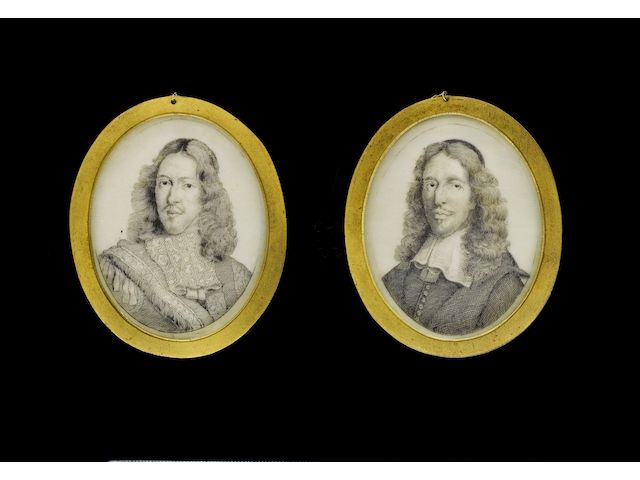
Fine Portrait Miniatures28 Jun 2012London, Knightsbridge
Among the lots offered in the Bonhams Fine Miniature Portraits sale in London on 28th June, a pair of pictures recalls one of the most violent and brutal episodes in Dutch political history. Dated around 1675, the delicate miniatures on ivory portray Johan de Witt and his brother Cornelis, both of whom were murdered, eviscerated and partially eaten during the ‘rampjaar’ or ‘disaster year’ of 1672.
After practicing law in The Hague, Johan de Witt was elected ‘raadpensionaris’ (‘Grand Pensionary’) of the States of Holland in 1653, de facto Prime Minister of the Netherlands political system. Under his leadership, the Dutch Republic negotiated peace with England in the Treaty of Westminster in 1654 and grew in wealth and influence from a small confederacy to a global economic power. With the onset of the Franco-Dutch war in 1672, however, de Witt’s rival power base, the Orangists, seized power by force and deposed de Witt.
Cornelis de Witt, also a politician and a vigorous ally of Johan’s, was imprisoned on trumped up charges. Johan went to see his brother, allegedly after receiving a forged letter from Cornelis, requesting his visit. When Johan arrived, both brothers were dragged outside and beaten, stabbed and shot to death by an organised mob. Their bodies were stripped, hung upside down from a nearby gallows and mutilated, with fingers, toes and genitals sliced off and hearts gouged out. Bits of the corpses were sold as souvenirs while others were cooked and eaten. The gruesome episode is the subject of a painting by Jan de Baen in the collection of the Rijksmuseum, and is also intensely described in the first four chapters of Alexandre Dumas’ novel The Black Tulip. A tongue and finger from one of the brothers are conserved as relics in The Hague Historical Museum.
Jennifer Tonkin, Specialist in the Portrait Miniatures department at Bonhams commented: “Johan and Cornelis de Witt, key figures in Dutch history, represent both one of the most prosperous and one of the most savage periods in the Netherlands’ past. The delicate depictions of the brothers in this refined pair of portraits presents a conspicuous contrast to their notoriously gruesome deaths”.
Other highlights in the Fine Miniature Portraits sale on 28th June include The Three Graces, a famed high society portrait of three eighteenth century English beauties and a portrait of Queen Victoria, Queen of Great Britain and Ireland, at the theatre.
